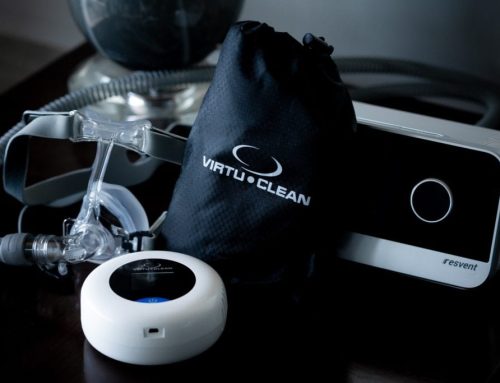Table of Contents
Are Processed Foods and Sleep Apnea Related?
With all of the modern advances in medical science and education, we know very well that diet is closely linked to our overall health. If you are one of the 25 million Americans that suffer from sleep apnea, you might be particularly interested in how your diet relates to your condition.

It has been suggested that diet, particularly the consumption of processed food, can trigger or worsen cases of apnea. Find out whether there’s any validity to this, and discover other factors that could be affecting your sleep health.
Processed Food Could be Making Your Sleep Apnea Worse
In today’s society, it’s often hard to avoid heavily processed food. Whether you are enjoying a convenient takeout meal or even home cooking, it’s likely that there’s some element of processed food on your plate.
While processed food is cheap and convenient, it’s definitely not the best thing for your health. It can contain high amounts of preservatives and sodium. Sodium can increase your blood pressure, and with an already elevated risk of hypertension from apnea, it’s a recipe for disaster later in life.
Even beyond the long term risks, consuming processed food could have an immediate impact on obstructive sleep apnea.

According to a 2018 study published in the American Journal of Lifestyle Medicine, consuming processed meats can increase the severity of apnea. The study looked at 104 patients who participated in a validated dietary survey. Those who ate processed meat often had the worst apnea conditions. Notably, those who consumed a diet that was more than 35% fat also suffered from more severe apnea.
Processed food often has a higher fat content than unprocessed alternatives. This lends strong evidence to the claim that processed food (particularly meat) is making your apnea worse.
If you are receiving treatment with a CPAP machine, and using a CPAP cleaner daily, but still suffer from some apnea, then a simple dietary change could be enough to alleviate the worst symptoms.
Other Lifestyle Factors That Affect Apnea
Simply cutting out processed meat and high-fat foods might not be enough to significantly change your apnea symptoms.
- Reduce or eliminate alcohol consumption to enjoy better quality rest.
- Eat a more balanced diet that substitutes refined carbohydrates for healthier whole grains.
- Become more active through regular exercise. Being overweight, especially around the neck, can make apnea worse.
- Eliminate smoking and/or vaping products. This dries the throat and can make apnea worse.
- Ensure that you are getting a good balance of essential vitamins. A lack of vitamin D, in particular, can make apnea worse. Talk to your doctor about an effective multivitamin that could help support apnea treatment.
Are You Getting the Best Sleep Apnea Treatment?
Do you feel like your diet is exacerbating your sleep apnea condition? While diet and overall health can play a role, you may still need treatment regardless of other lifestyle factors.
Sleep apnea is treated in a variety of ways. One of the most common is CPAP therapy. Take a look at your options below. You can discuss these with your doctor if you feel that your current solution isn’t working.
- CPAP therapy is used to treat moderate and severe sleep apnea. This involves using a machine that provides positive air pressure through a face mask, which keeps your airways open during the night. While highly effective, it can take some time to get used to CPAP therapy. It’s also critical to keep equipment clean and sterile, to prevent contamination from bacteria and other pathogens. CPAP cleaners are used to sterilize equipment using effective methods like UV light and ozonated air.
- Auto-CPAP and BiPAP devices are slight variations, where pressure is regulated throughout the night. This allows for more comfortable breathing in people who don’t respond well to standard CPAP therapy. These devices also need to be sterilized daily using a CPAP machine cleaner.
- Passive Oral Appliances may also be recommended by your doctor, depending on the severity of your condition. These devices are not as effective as CPAP or its variants, but they may be enough to treat moderate or minor cases. Doctors and some dentists can provide advice surrounding an oral appliance that would suit you.
- Various forms of surgery are available for sufferers of sleep apnea. Tissue removal, nerve stimulation, implants, jaw repositioning, and air passage creation (tracheostomy) may be recommended. Surgery is usually a last resort when other forms of treatment aren’t effective.
If you’re already using a CPAP machine but are yet to invest in a CPAP cleaner, it’s time to explore your options. Best CPAP Cleaner offers affordable devices for any lifestyle. You can choose from portable battery-operated devices, right up to countertop devices with one-touch cleaning cycles.


 Shop
Shop



